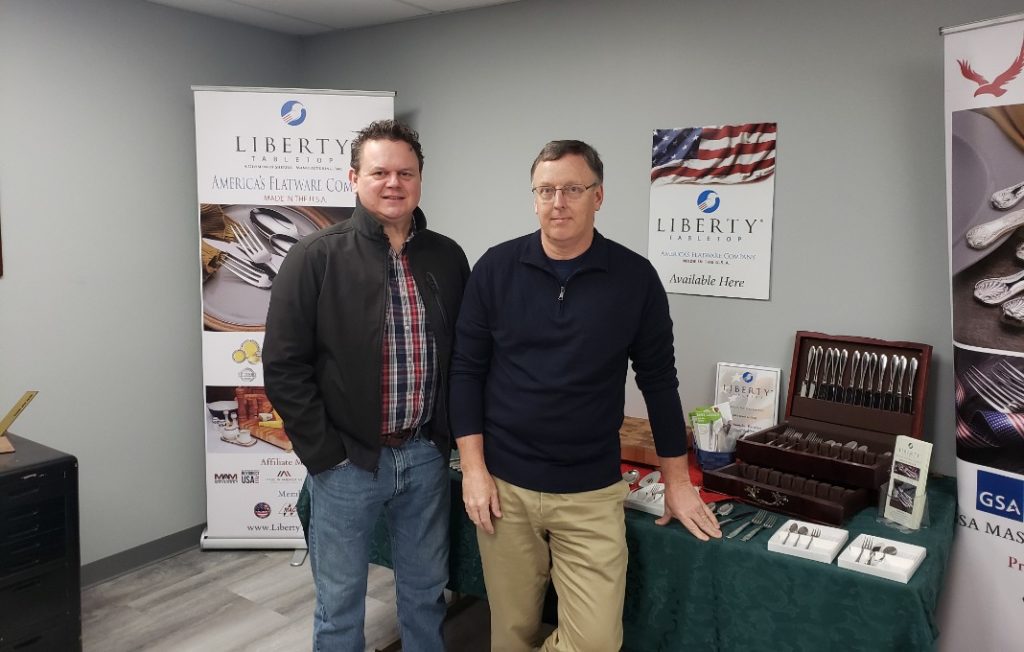Sherrill Manufacturing has tackled the obstacles to its business plan one by one over the last several years, and now co-founders Greg Owens and Matt Roberts are taking on the latest: a severe shortage of manufacturing workers that has them finally purchasing their first robot.
In part of a factory complex previously run by Oneida, in Sherrill, New York, the company makes its own brand of Liberty Tabletop flatware and also produces private-label utensils. After decades of the decline and then ultimately failure of American-made tableware as Chinese-made imports invaded, over the last decade Liberty Tabletop has built a multi-million-dollar and growing niche as the only U.S-manufactured brand in the business. Recent trends such as Covid cocooning and consumers’ dismay over Chinese-made goods have been helpful.
But to fulfill their plans to extend their brand and the company’s growth, Roberts, who is president and chief operating officer, is buying Sherrill Manufacturing’s first robot to work alongside its several dozen factory-floor employees. At a cost of $275,000, the company is installing the robot in its forging operation, eliminating two positions within the function and leaving a sole worker to monitor it and check the output.
“It’s going to more than double our production and allow us to forge at a higher temperature, which will increase our die life and make finishing easier,” Roberts told StrategicCIO360.com. “Once it’s installed, our payback will be less than a year, because it’s going to eliminate two employees at $50,000 apiece plus benefits and save another $200,000 in previous finishing costs.”
On a second shift, the robot would allow Sherrill to double production again compared with current levels “without any more capital investment,” Roberts said.
Currently, the limitations of human beings and those imposed by regulators for their safety have put a ceiling of about 1,500 pieces a shift on Sherrill’s flatware production. “We’ve got to have light curtains, and there are OSHA and [state] rules, which cut production in half,” Roberts said. “With a robot, they don’t take breaks or go to lunch or the bathroom, and they put the piece in the exact spot each time.”
Roberts had longingly considered the prospect of installing a robot for years to help relieve “the mankiller part of the jobs” in the factory, even decades earlier when he was helping manage thousands of workers on the site for Oneida. “But robots were very expensive then, and the only place you really saw them was the auto industry, because of the huge capex.”
Sherrill Manufacturing was able to pick up many of the best former Oneida employees as it got going, but in the last few years it became apparent that boosting production to meet a significant rise in demand for its knives, forks and spoons was going to require automation at some point, Roberts said. “There aren’t enough workers in the workforce willing to do certain jobs that we have,” he said. “And when we hired them, the ability and work ethic wouldn’t be there.”
Certain operations on the Sherrill floor remain essentially so artisanal that the company does everything possible to retain the skilled workers who execute them, such as those who perform hand finishing of spoon bowls. “We’ve minimized the hand finishing with automation as much as we can,” Roberts said.









